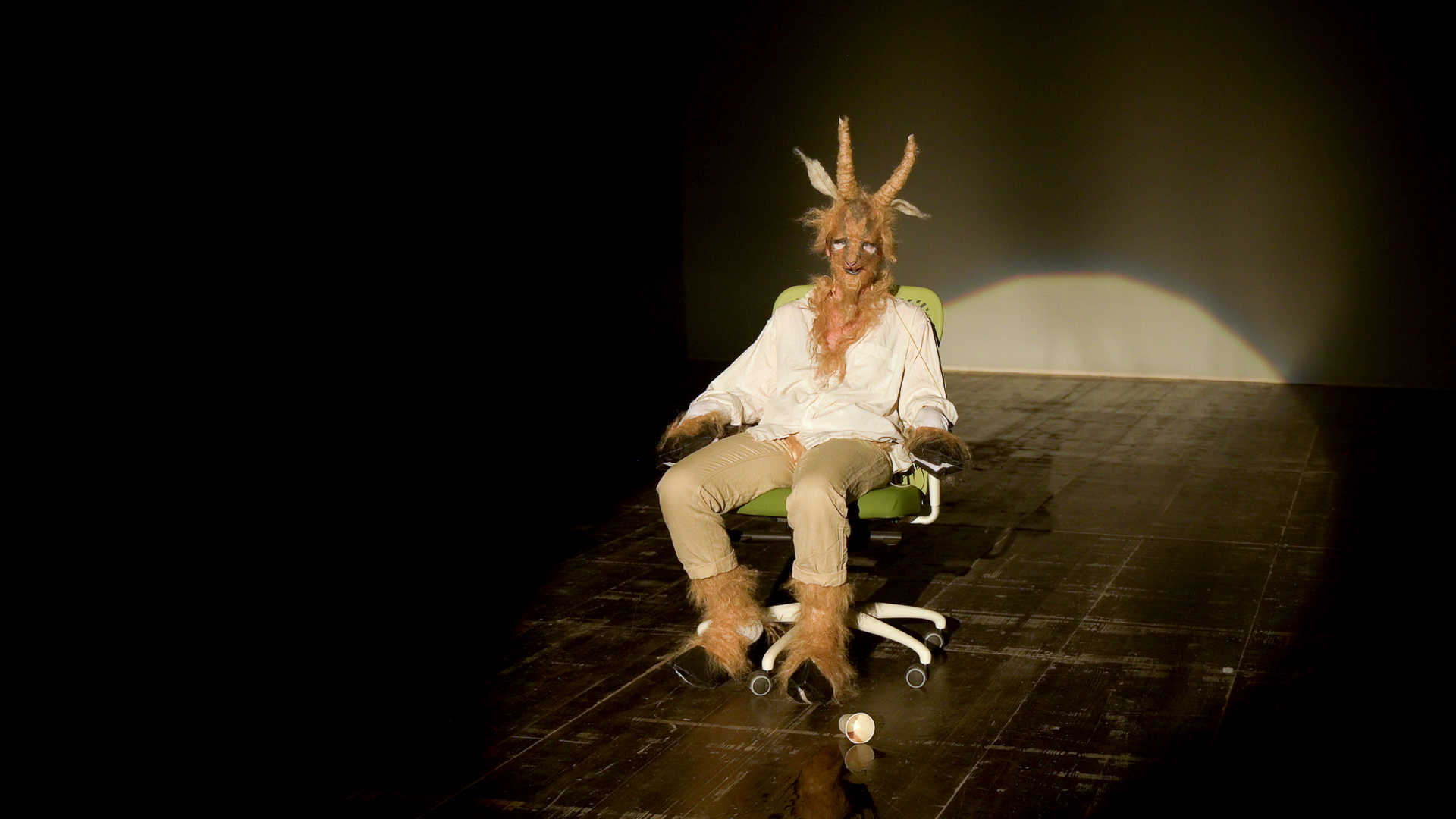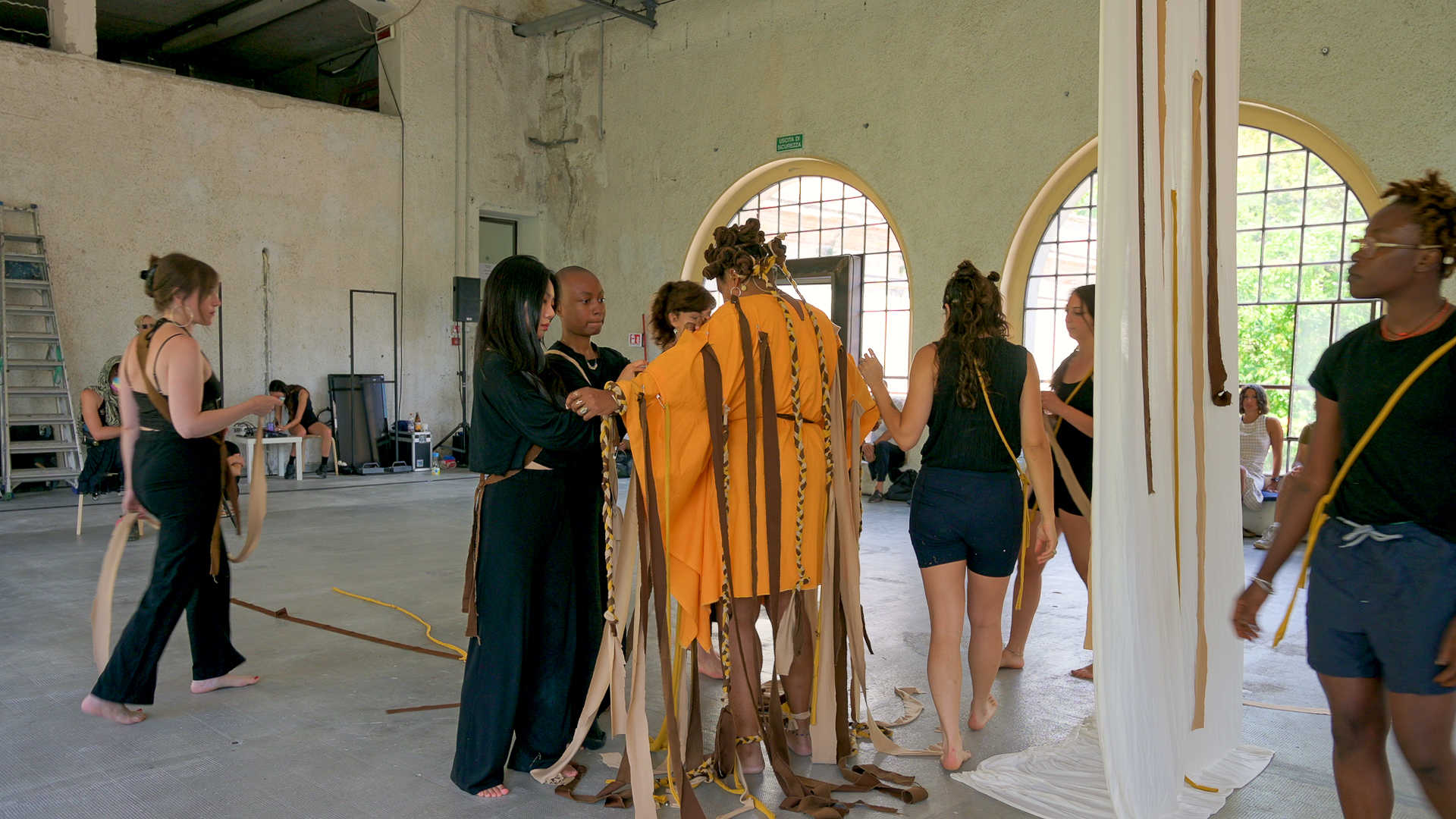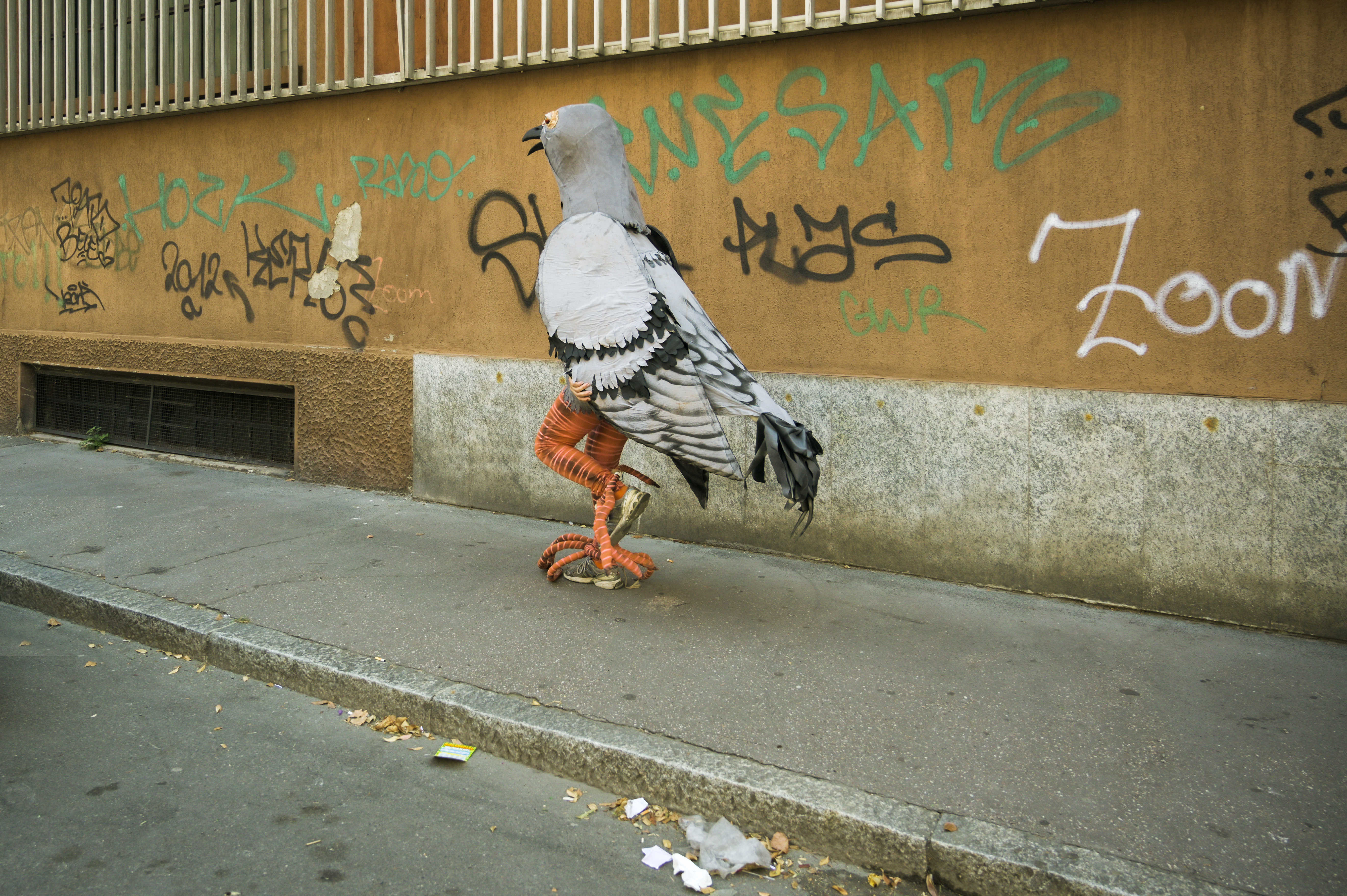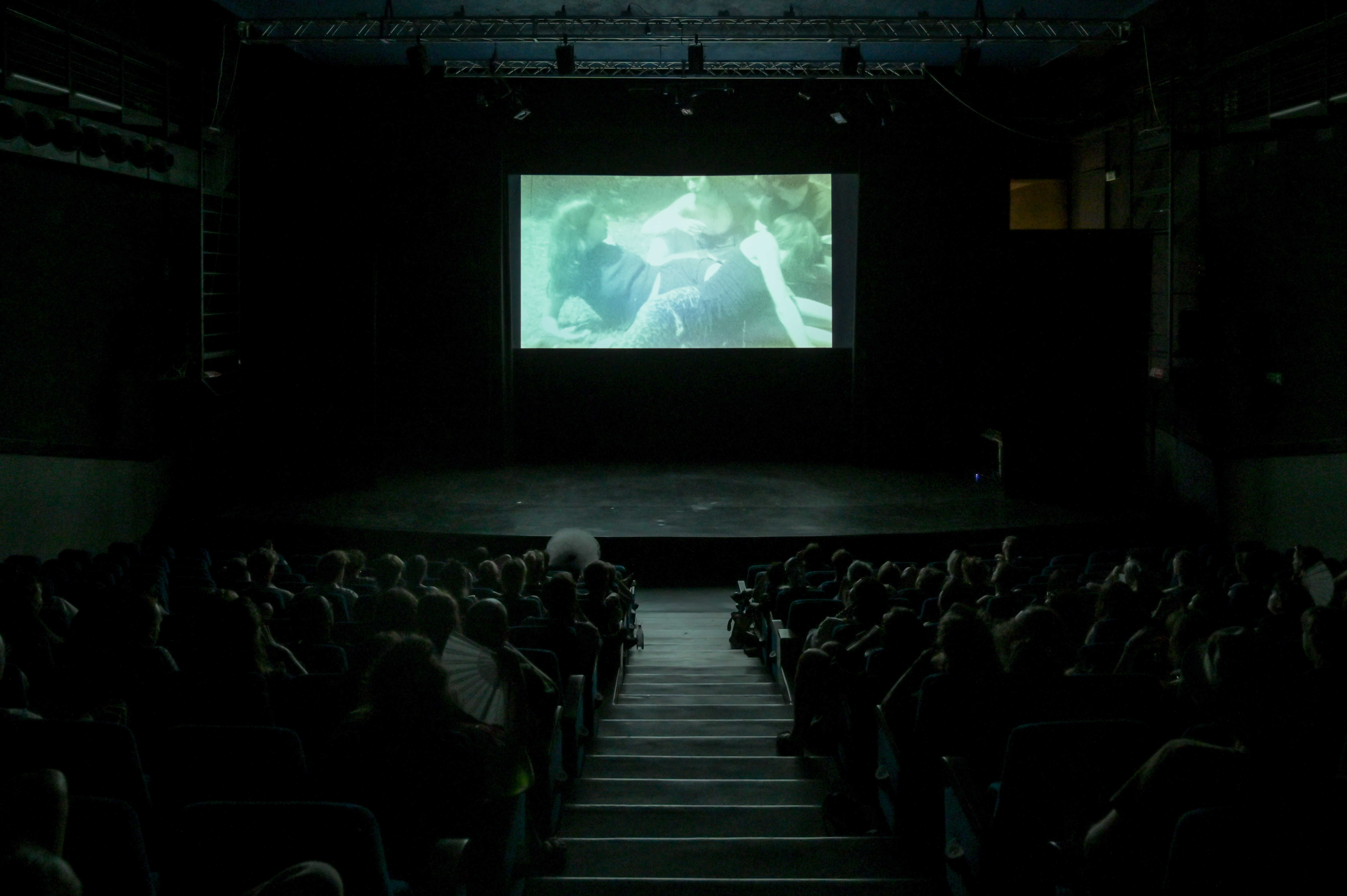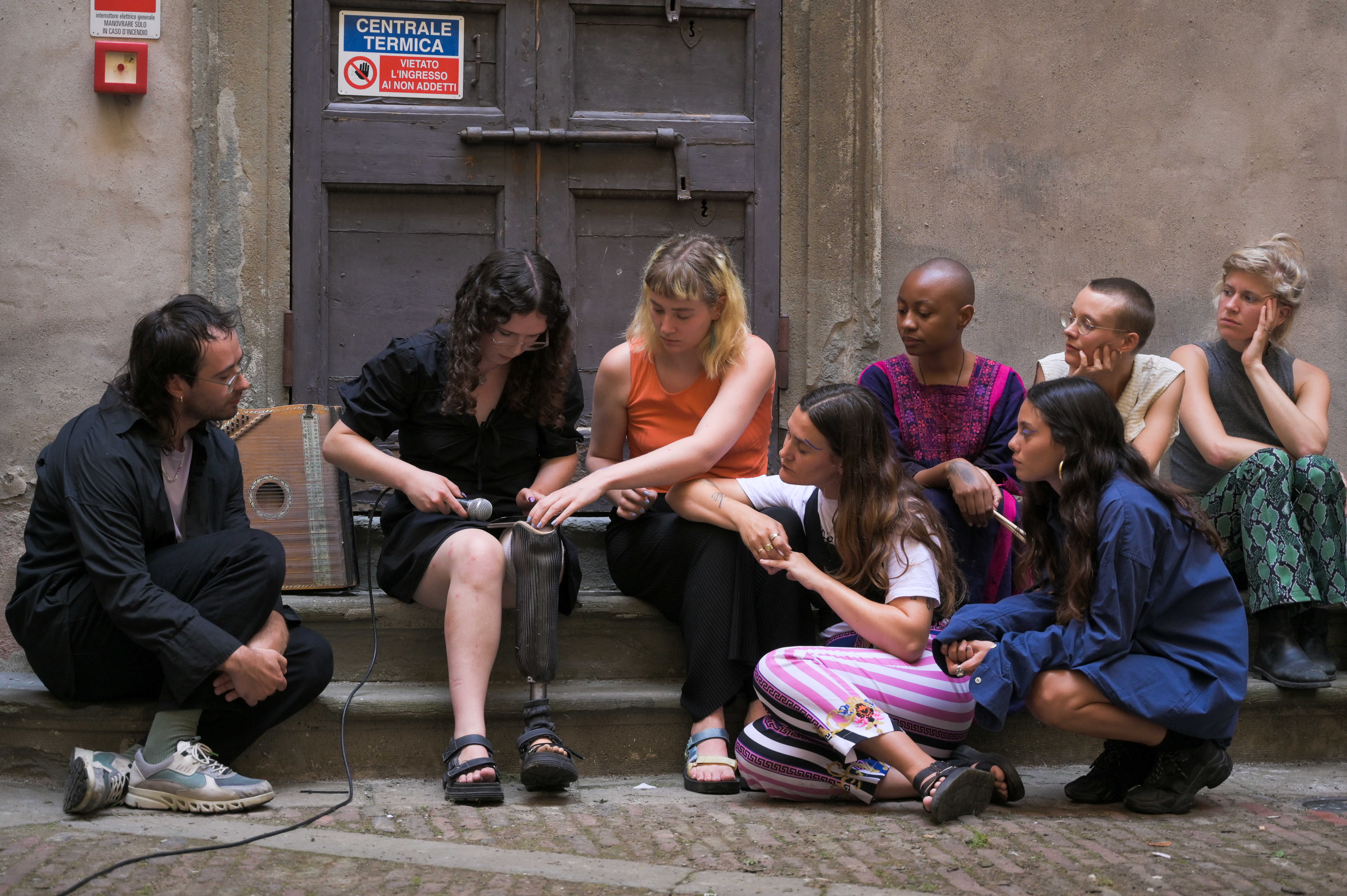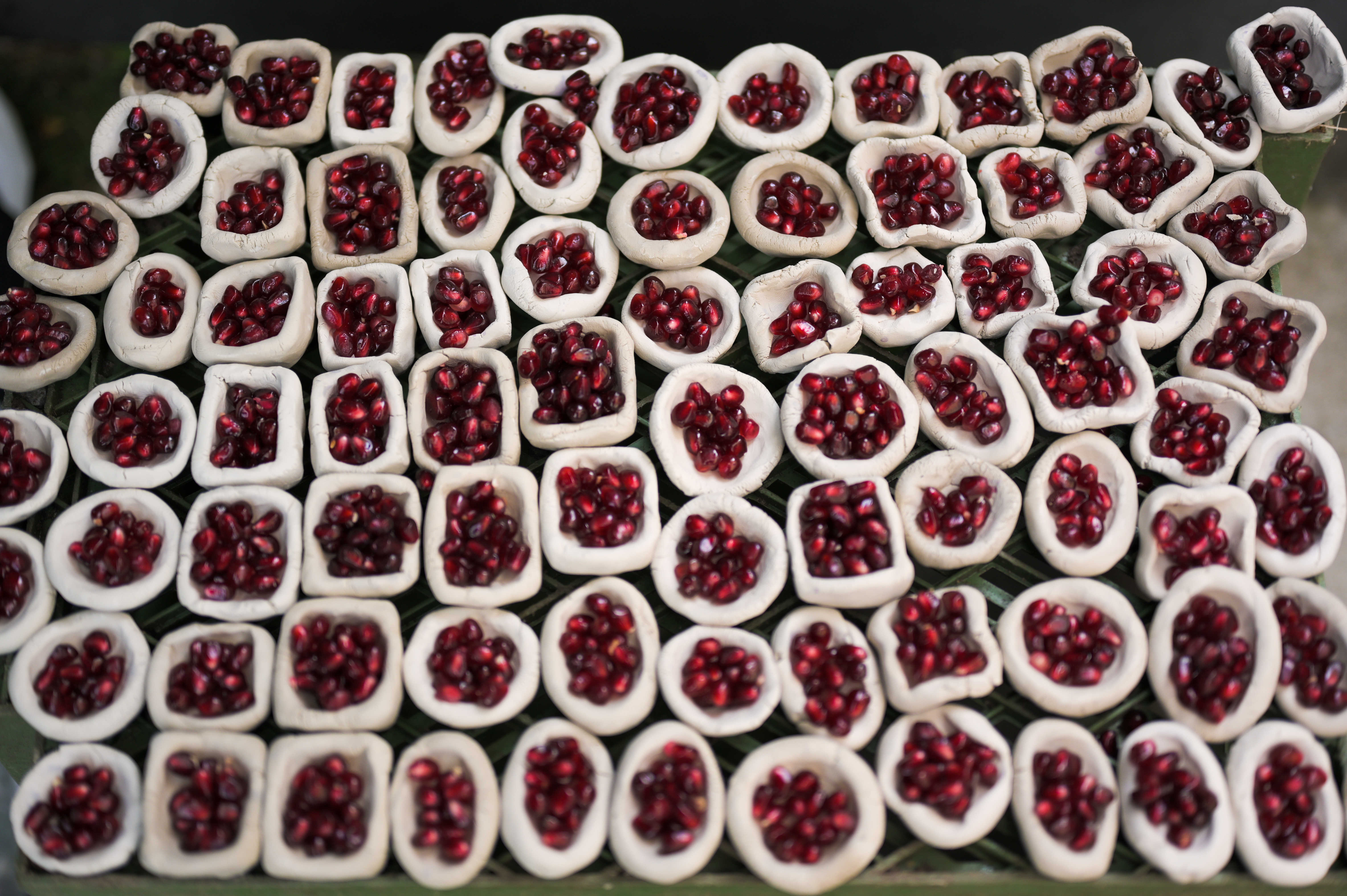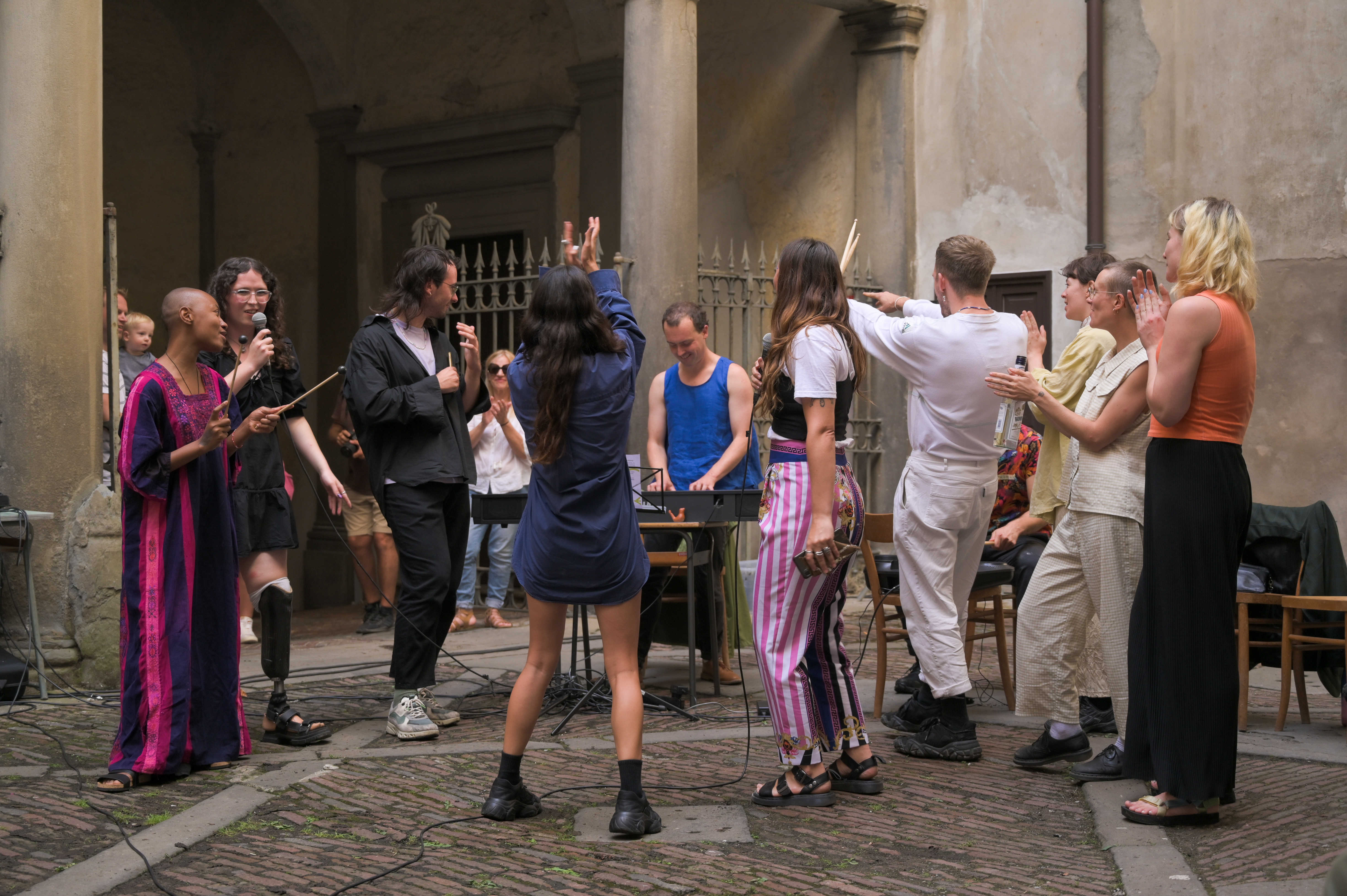Admission Requirements
At DAI we all* study at the intersections of art practice (action) and theory (reflection): Art Praxis.
As an MA-student at the DAI you can boast an energetic, inventive, engaged and engaging praxis: as beginning, emerging or established** maker, performer, producer, writer, curator, educator, researcher, or, and this is most often the case, a hybrid of these. You may have a background in visual art, theory, sound, science, theatre, writing, spoken word, architecture, cinema, dance, choreography, design or another relevant (or irrelevant in light of your current research) field. Study at DAI on a methodological level is conducted in entirely de-disciplined ways, but students and tutors, if compelled to, are welcome to join in and contribute with research evolving from their specific disciplinary backgrounds. With that in mind it is however more than relevant to appreciate that our program is critically positioned within the (versatile and porous) domain of 'contemporary art': its discourses and its discontents.
As Roaming Academy, landing at changing locations and operating within the fixed time span of each so called DAI Confluence (where we gather to study and live together for a period 7 - 12 days depending on the schedule), we must always work around limitations in regard to our modus operandi for the sharing of our research: bringing material works (unless foldable and lightweight!) from your studio to the various DAI locations is not an easy option. Over the years a wealth of incredibly creative solutions for sharing artistic research while on the road, have been explored. With the help of our bodies, our intelligences, of sound and light, of the given surroundings as backdrop and of the props found on location and in our suitcases, we have been, and will hopefully continue to be, able to perform magic.
*you apply to the DAI as a whole, not to individual tutors or tutorial teams.
**established practitioners can be welcomed as students, under the condition that they keep in mind that "to be teachable is to be open for change" ~ (Lauren Berlant: Cruel Optimism)
Required degree
In line with official regulations you must already have earned a BA, BFA or a degree-level certificate at a higher level of study in order to be accepted. Certificates will be verified by the Student Department@ our "parent" University of the Arts called ArtEZ.
Exceptionally, an application by a truly outstanding practitioner who is not in the possession of a relevant degree may be taken into consideration. Please note that we as DAI can only issue a heartfelt recommendation and motivation letter to underpin our strong wish to accept you into our program. It is the official Exam Committee of the ArtEZ University of the Arts which holds the exclusive right to veto our joint request for admission. The Central Exam Committee has offered guidelines for acceptance of candidates not in the possession of a relevant degree into the MA programs of the ArtEZ Graduate School: find them under the link.
If you think your case is solid enough, you are still VERY welcome to apply for a placement@DAI. We might be up for a challenge, but, hey, Fighting Bureaucracy is our middle name:).
English(es)
The DAI recognises that English for the majority of our students is an acquired second, third or even fourth language (many within our community are multilingual because of family background and/or migration histories).
The DAI sees English, for better or for worse, as the lingua franca (working language, bridge language, vehicular language, unifying language); the language we use systematically, in order to make communication possible between people who do not share a mother tongue. We want to celebrate that there are many Englishes*, including new de-colonized versions. Communication skills at the level of our syllabus will be assessed by the Admissions Committee. Nothing more, nothing less.
*We warmly recommend you to visit the fantastic Englishes-MOOC written, produced and taught by the artist Nicoline van Harskamp. She introduced the term ‘Englishes’ to describe the global use of English between people who do not speak it as their first language. It refers to the multitude of emerging varieties of English, that may eventually replace its dominant strains. Englishes-MOOC is an online open course for everybody who is interested in the use of non-standard forms of English, no matter their own proficiency in that language.
Pluriversity
There is no age restriction for study at the DAI, nor is there a set limit to the time span between graduation with a bachelor's degree and application to our master's programme.
The DAI seeks to bring together a variety of praxes, experiences, intuitions and queering positions, a plurivocal band of great people whom we believe will be able to connect with each other in an interesting, deep way through shared poetical and political sensibilities, struggles and questions, rather than limiting / disciplining similarities .
We recognise the fact that all of us have multiple identities (inherited, achieved, adopted). The DAI community wishes to be a space that cultivates awareness. We aim to have an oppression-free space. While we have this as a common goal, we acknowledge that this takes work. Some of the work has to do with, speaking up, developing language and deepening analyses of how systemic oppression operates, which allows us to better understand how we can change ourselves and our communities for the better.
We welcome practitioners who are eager to commit to this aspiration.
A "we" perhaps
DAI people (students, tutors, facilitators) ideally share:
*a reflective mind
*a desire for discourse
*a loving and caring embrace of the diverse and polyphonic classroom
*a committed interest in art as a space for free, yet answerable thinking and making
* a committed interest in art as a space for the exploration of collectivity / collaboration as modus operandi
*a receptive but also responsible attitude towards the experimental and the contingent
*an amused appreciation of (soft, non-invasive, anti-colonial) spaceships and a hands on approach to some hardships as well as the many joys of communal life on board
*a respectful and generous attitude towards both hosting and guesting
* DAI people ideally subscribe to the relevance and beauty of the concepts of care of the self (in the (divergent) non-liberal ways of Audre Lorde and Michel Foucault)
as well as
*love of the world (Hannah Arendt, Édouard Glissant)
Read more about the positions we care for as extended family and as institution:
Access: visible and invisible barriers
The DAI offers a unique and quite unruly program. As a Roaming Academy without a building and thus without fixed class rooms, let alone individual studio spaces, we are looking for highly motivated students who are willing to deal with the exciting, but also very specific, and challenging working & living conditions evolving from our infrastructure. Our crew is keen to help students navigate back and forth between their homes and soft spaceship DAI, but our capacities and means are not without their limits. Our "Planetary Campus" is a conceptual space, welcoming yes, but without walls and without roof. Incoming students will not find their beds made up for them... even though, we do of course cater for your bed & meals during all real life DAI Weeks.
Our program requires you to travel to the (regularly changing) locations where our DAI-Confluences are accommodated and what is described as "exciting and challenging" may come across as a highly ableist approach to education.
We are aware of that and we warmly welcome your questions in regard to accessibility and the support we can offer - under the above mentioned possibly limiting conditions there are definitely still a lot of ways to overcome hurdles and obstacles. ArtEZ, the overarching University offers general support. For DAI specific advice: please write an e-mail to ADMISSIONS@dutchartinstitute.eu and we will be happy and committed to take it from there together with you.
In general we are aware that there are all sorts of invisible barriers that prevent some prospective students from walking through our doors, even though joining the program would make so much sense! We are dedicated to work towards identifying and removing these barriers and we warmly welcome any suggestions.
Diversity is not only in who is selected, it is also reflected in who is a part of the review process as well as in how DAI-practioners are supported after leaving our program.
Last but not least
It is of vital importance to use the admissions trajectory as a serious exploration of our mutual interests; a check up on the realistic possibilities to make our relationship work.
We, from our part, are much looking forward to forthright and lively conversations with you. If you have seriously treshed out our website (including the Frequently Asked Questions) but are still left with queries you are welcome to contact Admissions@dutchartinstitute.eu

